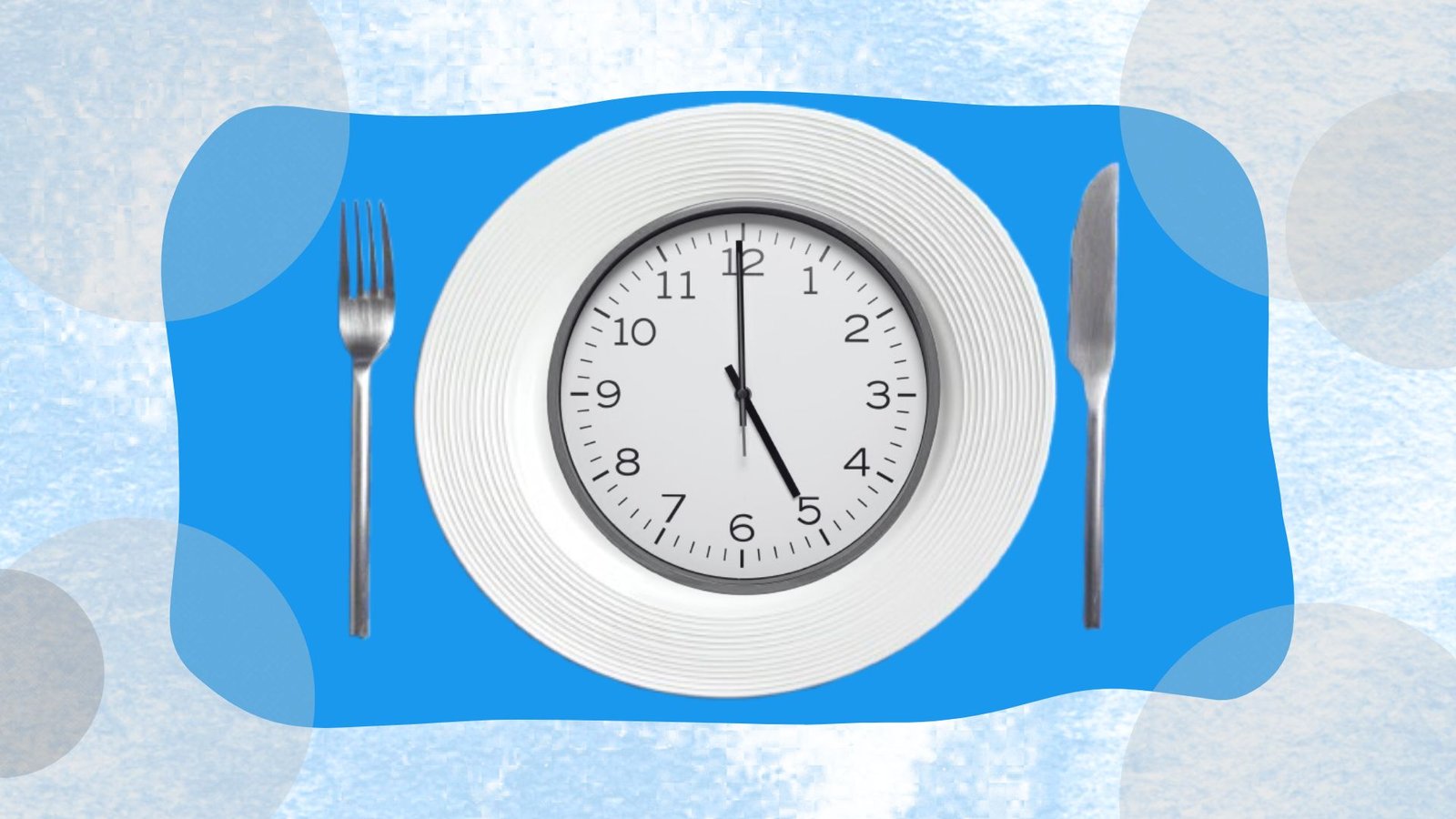This summertime, I found later sunsets meant later meals — and that meant a later bedtime.
Visiting my family also meant dining out late into the evening, which not only caused major social jetlag but also difficulty falling asleep after finishing dinner around 10pm.
I felt uncomfortable and stuffy while trying to fall sleep, and I experienced frequent awakenings when I eventually did.
Determined to improve my sleep, I decided to finish dinner at 5pm for a month by following the 16:8 method of intermittent fasting (eating within an eight hour window and fasting for 16 hours). And it worked.
But what is intermittent fasting, and why did it improve my sleep? I called on Lena Bakovic, MS, RDN, CNSC, a registered dietician at Live It Up, to find out…
What is intermittent fasting?
“Intermittent fasting (IF) is a method of time-restricted eating that usually occurs over a 24-hour period” explains Bakovic.
“Reframed, it is when an individual eats during a specific part of the day, and fasts (does not eat) during the remainder of that same day.”
The dietician explains that there are many different timeframes for intermittent fating, but the most widely recognized is the 16:8 method (the pattern I followed).
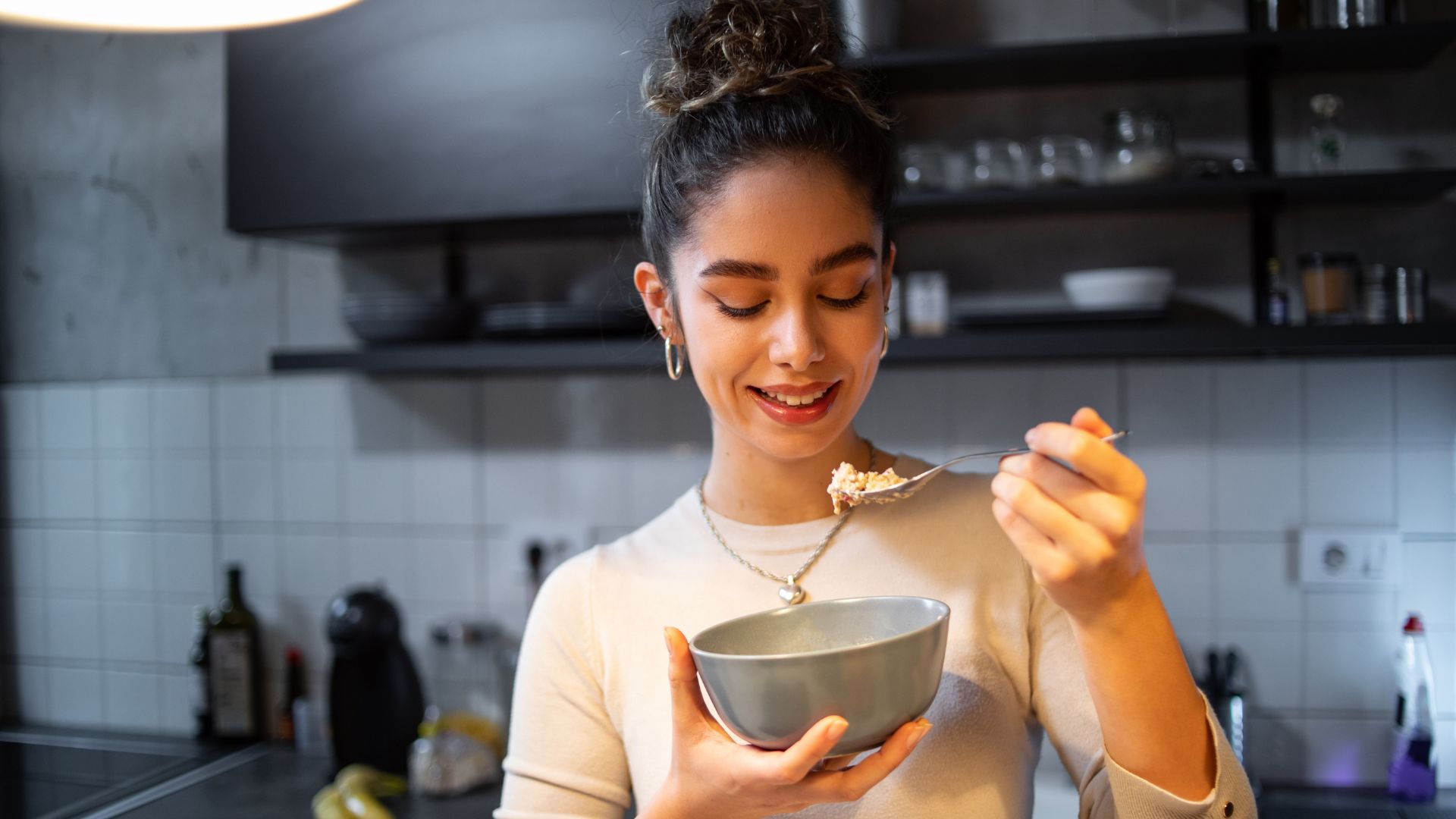
“The 16:8 method is a type of IF whereby an individual fasts for 16 hours of the day and eats during the remaining 8-hour span of time,” she told me.
3 ways early dinners transformed my sleep
Following this method for a month, I finished my dinner before 5pm every night and then had breakfast at around 9am every morning.
This meant I ate between 9am and 5pm (eight hours), and then fasted from 5pm to 9am the next day (16 hours).
1. Helped me fall asleep fast
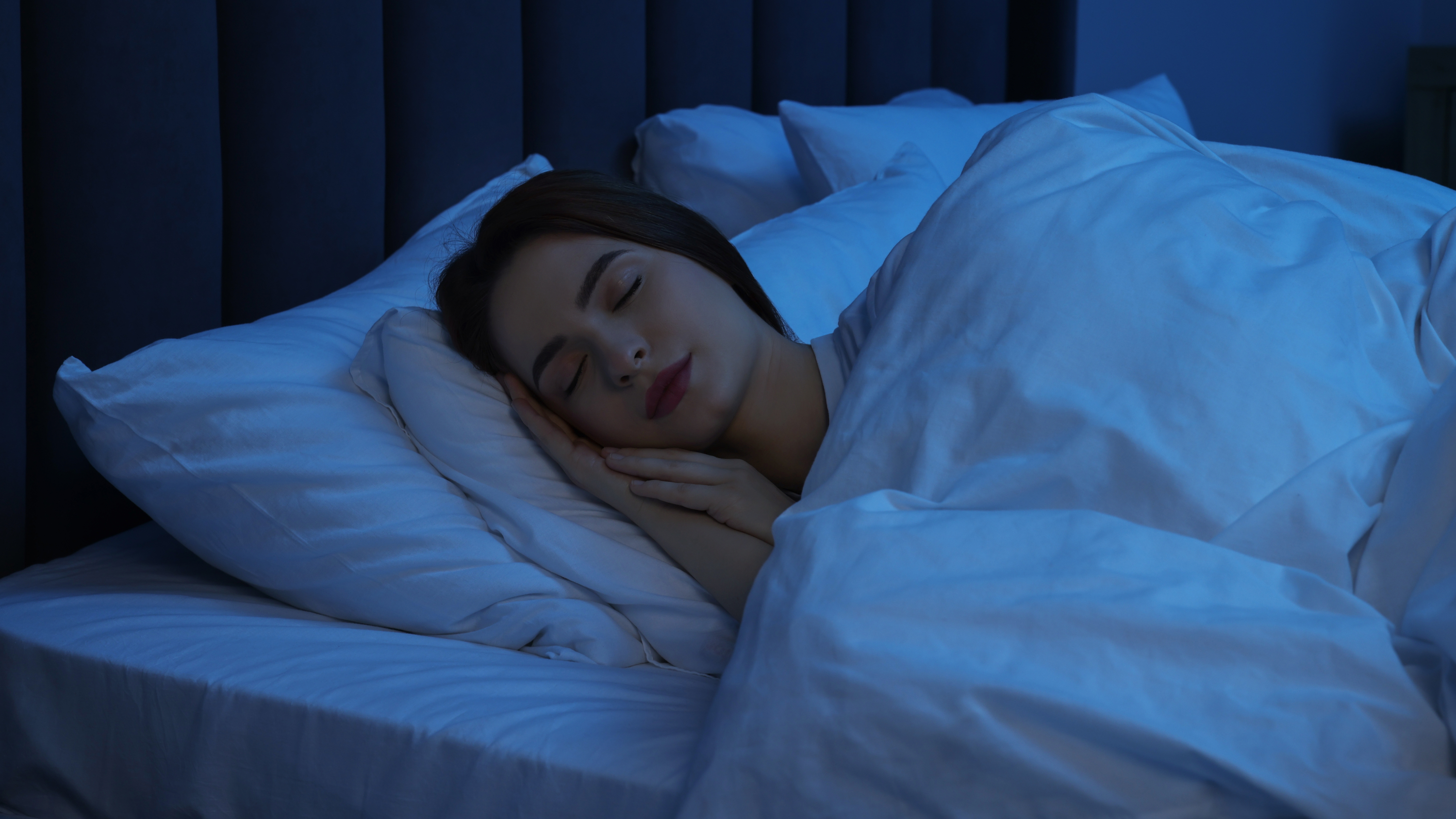
When I ate my food by 5pm, I noticed that I felt ready for sleep (or at least, ready to rest) by 10pm. My body had enough time to digest my meal and could now focus on winding down for the night.
It also felt less stuffy and warm in bed, and I didn’t experience any symptoms of blood sugar crashes, such as a rapid heartbeat, sweating and headaches.
2. Encouraged me to eat healthier options
When I broke my fast in the morning, I made sure to stick to nutritious, easily-digestible foods such as nuts (especially dates), plain Greek yogurt and fruit.
I then focused on eating plenty of healthy snacks and a light lunch throughout the eight-hour window, culminating in a small meal between 4pm and 5pm.

I tried to avoid refined sugar and simple carbohydrates (especially at night) and sneaky sources of caffeine like dark chocolate, too.
Eating a balanced diet free of comfort food most definitely contributed to better sleep, as a healthy gut decreases the risk of insomnia, while fruit and vegetables boost sleep quality.
3. Kept me hydrated
When I was fasting, I needed to make sure I was keeping my body hydrated (when you fast, you tend to inadvertently reduce your water intake).
Hydration improves sleep as research shows inadequate hydration is associated with short sleep duration.
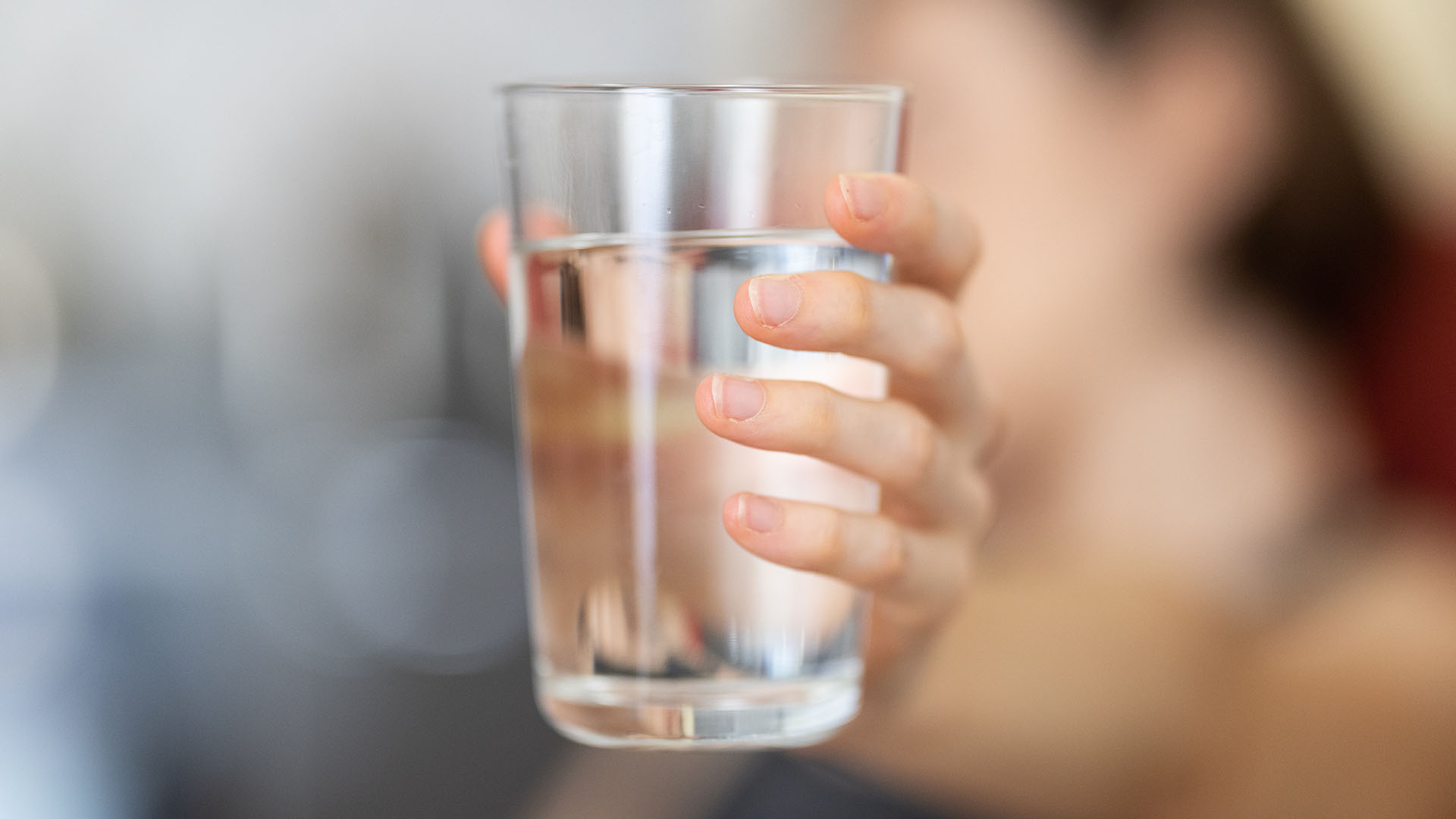
Water, soda water, herbal or green tea, and black, unsweetened coffee are allowed during fasting as they contain no calories, but I made sure to stick to coffee and green tea in the mornings only.
In the evening, I drank water and non-caffeinated teas to promote sleep. To avoid nocturia, make sure you stop drinking three hours before bed at least.
Why did intermittent fasting improve my sleep?
According to Bakovic, intermittent fasting can be beneficial for both sleep quality and overall health through balancing blood sugar levels and hormonal stabilization.
“IF can positively influence sleep by working to theoretically stabilize blood sugar levels which reduce energy fluctuations,” she explains. “Also, ‘hunger hormones’, such as insulin, are synergistically thought to be stabilized by periods of fasting.”
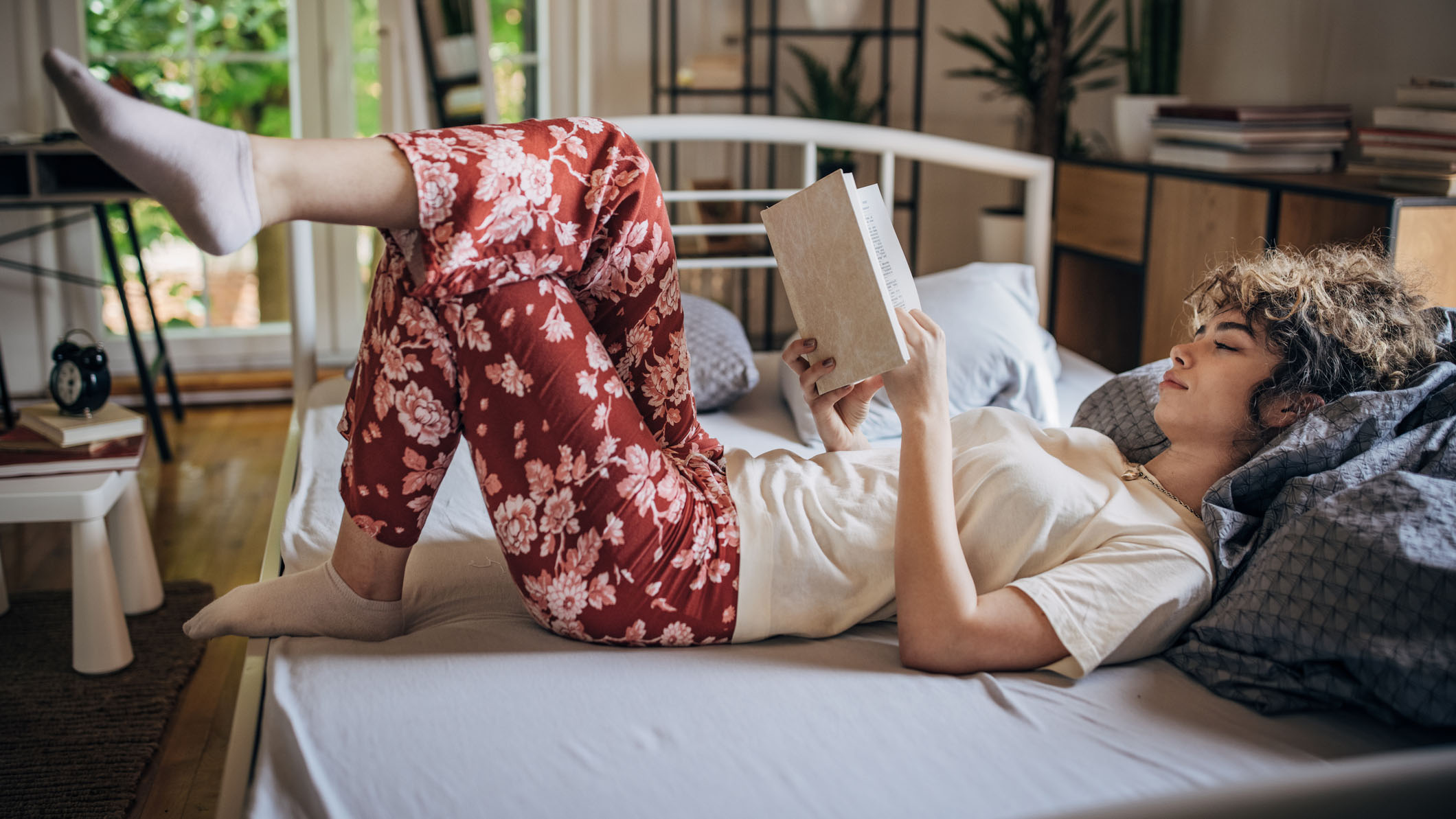
In addition to hormonal balances, the dietician says restricting the time you eat is conducive to sleep/wake cycles. “Eating dinner prior to 5pm can enhance sleep by aligning more to natural circadian rhythms and mealtimes,” she says.
Eating earlier also prevents indigestion and gastrointestinal issues won’t interrupt sleep. “Generally speaking,” Bakovic tells me, “our bodies require time to sufficiently digest the food that we consume.”
Expert shares 3 tips for intermittent fasting to improve sleep
Dietician Lena Bakovic shares her expert advice for anyone who wants to star intermittent fasting for improved sleep.
1. Take a gradual but consistent approach
Bakovic believes that our bodies need a stepwise transition to intermittent fasting, as opposed to abrupt changes, and should tailor they’re eating windows to fit their biological clock.
“I would advise a gradual approach as a place to start.,” she tells me. “Moreover, individuals may consider adjusting their periods of eating and fasting to their own, individualized circadian rhythms. Circadian regulation is optimized with consistent sleep and wake times.”
2. Hydrate, hydrate, hydrate

According to Bakovic, hydration is also of utmost importance with intermittent fasting.
“I believe this should be especially emphasized for older adults,” she explains. “Their dehydration risks increase mainly due to being on many medications, a decreased sensation of thirst, and the more likely presence of chronic conditions such as diabetes.”
3. Eat a balanced diet

Last but not least, Bakovic advises focusing on balanced meals (consisting of whole foods) outside your fasting state. “These are rich in fruits and vegetables, fiber, healthy fats, and lean proteins,” she says.
Meanwhile, she advises to avoid consuming heavier meals in the last few hours of your eating window and steering clear of caffeine and alcohol within your evening’s fasting window.
Who shouldn’t intermittent fast?
While intermittent fasting can improve sleep quality and health, Bakovic warns the following people shouldn’t fast under any circumstances:
- Individuals living with diabetes and unstable blood sugar control
- Children
- Individuals suffering from malnutrition, or who are malnourished
- Pregnant or breastfeeding women
- Individuals requiring medications where fasting would interfere with medication efficacy or produce side effects

